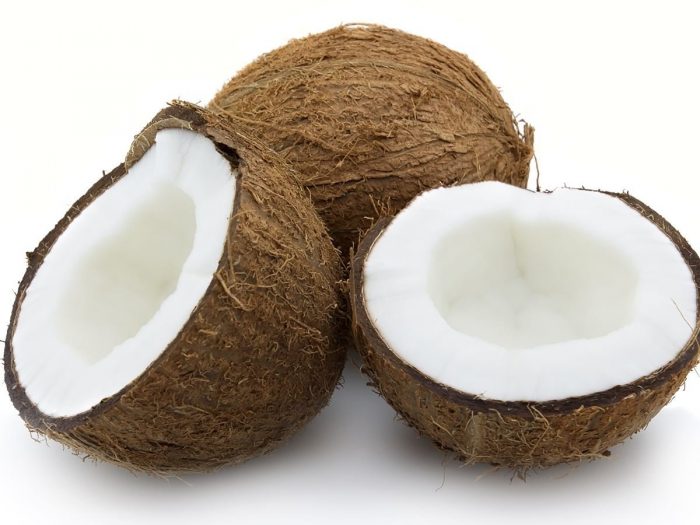Coconut oil has a multitude of health benefits, which include but are not limited to skin care, hair care, improving digestion and immunity against a host of infections and diseases. Let us see which of these benefits you are aware of.
Composition of Coconut Oil
More than 90% of coconut oil consists of saturated fats (Don’t panic! It’s not as bad as it sounds, read to the end of this review and your opinion may change), along with traces of a few unsaturated fatty acids, such as monounsaturated fatty acids and polyunsaturated fatty acids. Virgin coconut oil is no different from this.
Saturated fatty acids: Most of them are medium chain triglycerides, which are supposed to assimilate well in the body’s systems.
- Lauric acid is the chief contributor, representing more than 40% of the total, followed by capric acid, caprylic acid, myristic acid and palmitic. The human body converts lauric acid into monolaurin. Lauric acid is helpful in dealing with viruses and diseases.
- Capric acid reacts with certain enzymes secreted by other bacteria, which subsequently convert it into a powerful antimicrobial agent, monocaprin.
- Caprylic acid, caproic acid and myristic acid are rich in antimicrobial and antifungal properties
Unsaturated fatty acids: Polyunsaturated fatty acids- linoleic acid, monounsaturated fatty acids- Oleic acid
Poly-phenols: Coconut contains Gallic acid, which is also known as phenolic acid. These polyphenols are responsible for the fragrance and the taste of coconut oil and Virgin Coconut Oil is rich in these polyphenols.
Derivatives of fatty acid: Betaines, ethanolamide, ethoxylates, fatty esters, fatty polysorbates, monoglycerides and polyol esters.
Derivatives of fatty alcohols: Fatty chlorides, fatty alcohol sulphate and fatty alcohol ether sulphate
Vitamins and Minerals: Vitamin E, vitamin K and minerals such as iron.
